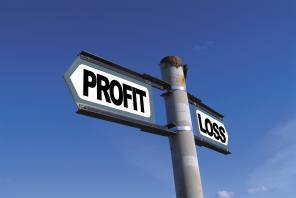

Investors may wish to claim against their fund manager when they detect greenwashing, but there is little hope of such claims succeeding, says Stefano Capacci.
The business unit lead for sustainable finance at Longevity Partners says the line of accountability in environmental, social and governance investing is murky, if anything investors are responsible for their own decisions.
However, this may change if the market starts to develop products that write in legally binding decarbonisation commitments.
In this Q&A with FTAdviser In Focus, Capacci explains the current issues with ESG regulation, the things that irk the regulators and why complaining is difficult.

FTA: Researchers are warning of greenwashing as passive ESG options have exploded. Do you predict a wave of claims in future from investors who feel they have been misled?
SC: Financial markets have evolved in a way where asset managers are asked to police the ESG performance of the products they invest in, meaning that the nature of claims from investors looking for recourse is complicated.
Financial actors are typically risk averse. Couple this with the fact that issuers of ESG products do not provide any guarantees in their fund prospectuses, and the investor is left wholly responsible for their own interpretation of the product.
In the case of Article 9 funds, there is a self-reporting mechanism where fund managers interpret the EMEA regulation.
Similarly to corporate investors, consumers purchasing such funds then have the responsibility of reviewing the ESG claims made by the product and, like in traditional risk management, take on the risk of the fund potentially failing to meet their ESG commitment.
However, if a fund manager markets an Article 9 product and subsequently does not deliver on the fund’s sustainable objectives, two risks present: (1) when audited, the regulator could fine them or force them to downgrade; and (2) the investors in the fund could withdraw their money.
FTA: How effective are ESG products in delivering what they promise?
SC: The current problem for the market is that the financial system has great limitations in being effective to meet these new requirements.
By definition, investors are capital allocators solely focused on risk and return. Because of our need to decarbonise the economy, we have created incentives in the market to allocate capital to green investments.
However, without a strong regulatory backing informed by clear cut definitions and targets around what the different shades of ‘green’ are, we are going to come up against hurdles.
Beyond the obvious bad faith actors, most greenwashing comes from a space of ignorance, adapting frameworks and targets that are not up to scrutiny when compared with the real changes we need to make to decarbonise the economy.
The market may evolve into developing products that write in legally binding decarbonisation commitments, which would create a direct line of accountability to the security issuer and mitigate some issues of greenwashing.
However, this is hindered by the myriad of complex and ambiguous ESG frameworks that leave too much space for interpretation.
It is likely that a wave of claims may be brought by investors, but given their position of responsibility in assessing the legitimacy of the ESG labelled product, such claims will fall flat.
FTA: Which areas do the regulators have the biggest concerns about? What issues have they already uncovered?
SC: Regulators are concerned about how sound the methodologies used by fund managers to claim a certain level of sustainability really are.
Given the lack of a standardised framework, regulators are emphasising maximum transparency.
For example, recent guidance issued by the European Commission on the definition of ‘sustainable’ under Sustainable Finance Disclosure Regulation emphasised that, as there are no minimum standards prescribed by the disclosure mechanism, assumptions and bespoke methodologies should be disclosed so that they can be scrutinised by investors and financial regulators.
This endemic standardisation risk greatly limits transparency across the market and regulators understand they have no effective way to check fund managers’ ESG claims.
By doing so, regulators are positioning themselves so that the responsibility of enforcing and policing regulations will fall on fund managers.
FTA: What should fund managers nevertheless do to shield themselves from the risk of future claims?
SC: Fund managers should make sure that methodologies used to qualify the sustainability label of a fund are as robust as possible, and based on the latest guidance from bodies such as the International Sustainability Standards Board and Science Based Targets initiative.
They should also ensure that sustainability-related terms in the naming and marketing of products are proportionate to the sustainability profile of the product.
FTA: How do you think the regulators will respond to any concerns they may have about this market over the next 12 months?
SC: In a broader context of ESG labels, the release of the ISSB methodology in June will purportedly standardise funds’ methodologies of ESG (outside the European market).
This will be a welcome development and one that regulators will be able to use to improve their oversight of the market and reduce declassifications in the future.
Regulators have made it very clear that they are not going to set standards in the ESG label market; they want to remain impartial.
It’s not their role to mandate the rate of progress of sustainable investments, and they want to appease market actors by not putting their hand on the scale of the already inevitable green transition.
However, this looks to cause another cycle of greenwashing and complaints soon. The current frameworks and minimum standards will have to go through a couple more rounds of evolution.
As the market matures and becomes more sophisticated, better targets and minimum requirements will become the norm.
Like we moved from sustainable development goals, aligned investments with EU taxonomy, a future evolution might involve a more accurate tracking of CO2 emissions and a minimum level of CO2 reduction for an investment to be considered sustainable.
By lagging on action, regulators are making the statement that current market standards constitute the best in class.
When the criteria inevitably improve, market actors will be forced to revert and ask regulators why they did not prepare for the upcoming round of declassifications.
carmen.reichman@ft.com




